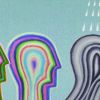-
 +31 +5
+31 +5“If there is a God, then anything is permitted”: On Dostoevsky, freedom, and religious violence
Most people today are spontaneously moral, and the idea of torturing or killing another human being is repulsive to them — in order to make them do it, some “sacred” Cause is needed which makes their concerns about violence seem trivial.
-
 +21 +6
+21 +6What Makes Someone a Writer?
How do you quantify something like that?
-
 +23 +2
+23 +2Is cybersecurity an unsolvable problem?
Ars chats with law philosopher Scott Shapiro about his new book, Fancy Bear Goes Phishing. Turing himself showed that perfect cybersecurity is impossible through the proof that he gave. It's easy to extend the proof just to see that among the problems that cannot be solved are finding bugs in computer programs.
-
 +22 +8
+22 +8Astronaut shares the profound 'big lie' he realized after seeing the Earth from space
Sixty-one years ago, Yuri Gagarin became the first human to make it into space and probably the first to experience what scientists now call the "overview effect." This change occurs when people see the world from far above and notice that it’s a place where “borders are invisible, where racial, religious and economic strife are nowhere to be seen.” The overview effect makes man’s squabbles with one another seem incredibly petty and presents the planet as it truly is, one interconnected organism.
-
 +21 +1
+21 +1The End of the Billionaire Mindset: A Celebration with Douglas Rushkoff
In an entertaining session of stand-up philosophy with Q&A, Rushkoff shares the stories of his encounters with the scientists, technologists, and billionaires hoping to leave humanity behind, while giving us the distance we need to laugh at their hubris and choose a different path.
-
 +16 +3
+16 +3Finding your essential self: the ancient philosophy of Zhuangzi explained
Zhuangzi was the gadfly of ancient Chinese philosophy. His paradoxical writings encourage a stance of therapeutic scepticism towards the world.
-
 +15 +3
+15 +3An unsuccessful search for aliens: Is the end of humanity inevitable?
There are several theories as to why we haven’t found extraterrestrial intelligence. A team at NASA has turned its attention to a worrying one.
-
 +10 +2
+10 +2Harmful Beliefs Deserve No Respect Even When Justified By Religion
Everyone can think of at least one belief system which is detrimental to human welfare. What I mean by "detrimental" in this context is that it leads to unnecessary pain and suffering. This does not mean it could not still have some positive attributes. But whatever positives might apply cannot make up for the harm caused.
-
 +14 +2
+14 +2You (Probably) Don't Exist
Consciousness is a bit like poop. It's a mysterious internal process, and if you talk about it at parties you'll stop getting invited to parties.
-
 +17 +3
+17 +3Understanding "longtermism": Why this suddenly influential philosophy is so toxic
Perhaps you've seen the word "longtermism" in your social media feed. Or you've stumbled upon the New Yorker profile of William MacAskill, the public face of longtermism. Or read MacAskill's recent opinion essay in the New York Times. Or seen the cover story in TIME magazine: "How to Do More Good." Or noticed that Elon Musk retweeted a link to MacAskill's new book, "What We Owe the Future," with the comment, "Worth reading. This is a close match for my philosophy."
-
 +16 +3
+16 +3The Illusion of Mind-Body Connection
Using biology to explain mental health disorders is alluring but risky. It isn’t that biology lacks usefulness in understanding the mind. It also isn’t that the mind is free from biological control or influence. In reality, everything is biological, including your thoughts, your speech, the way your speech impacts my brain activity.
-
 +14 +2
+14 +2Life and Death: A Cosmic Perspective from Neil deGrasse Tyson
-
 +22 +5
+22 +5Does the World Outside Your Mind Exist?
Is there a reality outside of our perception? If we cannot see, hear, feel, or otherwise perceive something, does it really exist? Solipsism is the philosophical idea that we can only ever be certain of the existence of our own mind. The world and other people outside of it may only exist as electrical stimuli in our brain. Constructs we build ourselves. Concepts to which we attach meaning. Information we process, interpret and use to survive. An objective reality may not even exist.
-
 +4 +1
+4 +1People with stronger Buddhist beliefs are more likely to donate blood due to greater sensitivity to morality
A study published in the Journal of Applied Social Psychology suggests that appealing to the moral elements of Buddhist teachings might encourage more people to donate blood. The researchers found that people with stronger Buddhist beliefs were more likely to say they would donate blood, and this was partly explained by increased moral attentiveness.
-
 +13 +5
+13 +5We need to talk about transhumanism
This weekend, hundreds of people from across the globe will gather in Madrid to discuss how to turn themselves into a new species. The occasion is TransVision, the world’s biggest annual meet-up of transhumanists — and probably the most important intellectual summit you’ve never heard of. This year, anti-ageing specialist Aubrey de Grey will explain why he thinks most people alive today have a 50/50 chance of living to a thousand years old.
-
 +11 +1
+11 +1The Influence of Buddhism and Taoism in Aleister Crowley’s Work
Writing about Aleister Crowley is a big responsibility. In a world that indoctrinates people into seeing the reality through a lens of duality (God or the Devil, Heaven or Hell, right or wrong), to understand Crowley and his importance to the mysticism requires us to go pass this dual vision, as he did in his life and development of his work.
-
 +19 +2
+19 +2Should We Fear the Future? The Philosophy of Transhumanism
Transhumanism is a philosophy that covers a wide range of different philosophical areas. In short, transhumanism engages with the necessity of overcoming humanity’s limitations and/or enhancing its abilities.
-
 +12 +4
+12 +4When life gives you lemons ... 4 Stoic tips for getting through lockdown from Epictetus
Born into slavery, then crippled by his master and exiled by the Emperor Domitian, Epictetus (c.60-135 CE) has become arguably the central figure in today’s global revival of Stoicism. A straight-talking advocate of the idea philosophy should help people flourish even in hard times, Epictetus has much to offer as we wrestle with pandemic lockdowns and uncertainty. Here are four tips from perhaps the most stoic of the Stoics:
-
 +20 +1
+20 +1The pyschedelic cure for philosophy
Philosophy of mind has been crippled, since its very beginnings, by two main prejudices. First, the blind implementation of the traditional Western logical framework, that boils down to Aristotelian logic; second, the perennial neglect of crucially relevant empirical data, in so far as, in most arguments, sense-perception is reduced to sight alone.
-
 +4 +1
+4 +1Pursuing happiness is a mistake
An alternative moral outlook to utilitarianism, would be a better starting point during the pandemic. One that doesn’t lead us to treating others as means towards a greater good, argues Amna Whiston.
Submit a link
Start a discussion




















